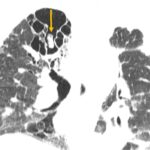Experts offered perspectives on how symptoms of rheumatic disease, such as fatigue, affect the physical, cognitive and emotional health of patients and offered solutions.
Search results for: diet

Environmental Threats in Rheumatic Disease
Rheumatic diseases are intrinsically linked to environmental conditions. With a constantly changing environment, how can rheumatologists adapt to the challenges of global climate change, pollution and other environmental threats? The Environment + Genetics Tamiko Katsumoto, MD, a clinical associate professor in the Division of Immunology and Rheumatology at Stanford University, Palo Alto, Calif., emphasizes the…

Interventions to Delay RA Onset
Two new successful trials in abatacept, APIPPRA and ARIAA, are the first to convincingly demonstrate the potential of a preventive approach to RA treatment.

Case Report: Voriconazole-Induced Periostitis
In this case report, a patient with voriconazole-induced periostitis exhibits classic symptoms & elevated ALP levels, which quickly resolve following the discontinuation of voriconazole.

Editor’s Pick: Palliative Care for Inclusion Body Myositis, a Case Report
Inclusion body myositis (IBM) is a slowly progressing muscle disease of unknown cause that currently has no effective treatment. IBM is the most common inflammatory myopathy in older individuals, with a rising prevalence of 18.2 per 100,000 in adults older than 50.1,2 The disease characteristically affects the quadriceps and finger flexors, and in later stages…

Empowered Patients
This year’s theme for Rheumatic Disease Awareness Month focuses on self-management, aiming to provide tools and tips to empower patients, boost awareness about the importance of self-management and, ultimately, improve patient outcomes.

The Impact of Climate Change
Although research is still emerging, evidence suggests changes in climate, such as increases in heat, pollution and allergens, may increase the risk of flare and hospitalization in patients with rheumatoid arthritis, systemic lupus erythematosus and other rheumatic conditions. Paul Dellaripa, MD, discussed the research and how rheumatologists can help their patients.

What Rheumatologists Need to Know About Antiphospholipid Syndrome
Antiphospholipid syndrome (APS) is an acquired thromboinflammatory disease that can have severe, sometimes catastrophic, effects on patients and their families. Our modern understanding of APS began to emerge in the early 1980s. At that point, it was defined as a condition characterized by thrombotic episodes and/or pregnancy complications in the presence of antiphospholipid antibodies (aPL).1…

The Prospect of Rheumatoid Arthritis Prevention
Rheumatoid arthritis (RA) is treatable, and for that, we should be grateful. But wouldn’t it be better if we could prevent it from even happening? Recent data from a study in China demonstrated some interesting results. Could an older type of diabetes medication be the answer we’ve been looking for? Background Preclinical studies have suggested…

Case Report: Complicated Presentation Eventually Explained by Rare Syndrome
Pachydermoperiostosis (PDP), also known as Touraine-Solente-Golé syndrome or primary hypertrophic osteoarthropathy, is a rare syndrome that can be inherited as autosomal dominant, autosomal recessive, or sporadically. This progressive disease primarily affects males, who tend to have more severe features than females. PDP usually occurs during adolescence, often starting around puberty.1 The main clinical features are…
- « Previous Page
- 1
- 2
- 3
- 4
- 5
- 6
- …
- 39
- Next Page »